CT Calcium Score in Singapore (2026)
Last updated: Jan 14, 2026
What Is CT Calcium Score?
CT Calcium Score, also called a coronary calcium scan, is a specialized computed tomography (CT) scan that measures the amount of calcified plaque accumulated in the coronary arteries. Calcified plaque is a sign of atherosclerosis or coronary artery disease (CAD), which can cause heart attacks and strokes. This simple, non-invasive test helps evaluate the risk of CAD by providing a calcium score that indicates how much plaque has built up in the arteries.
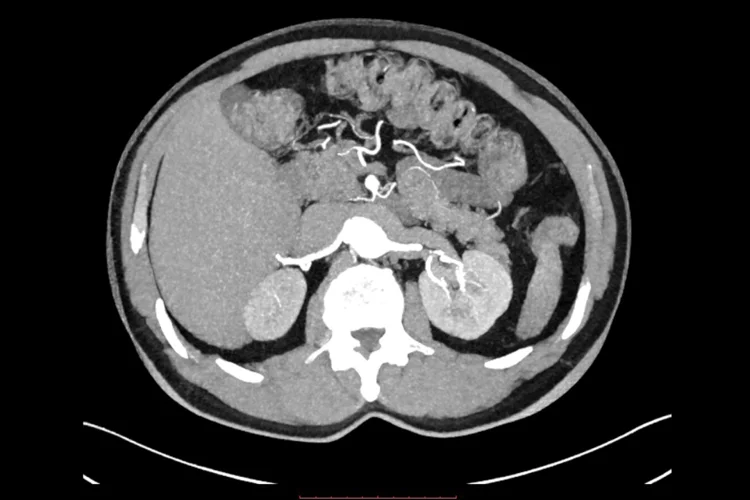
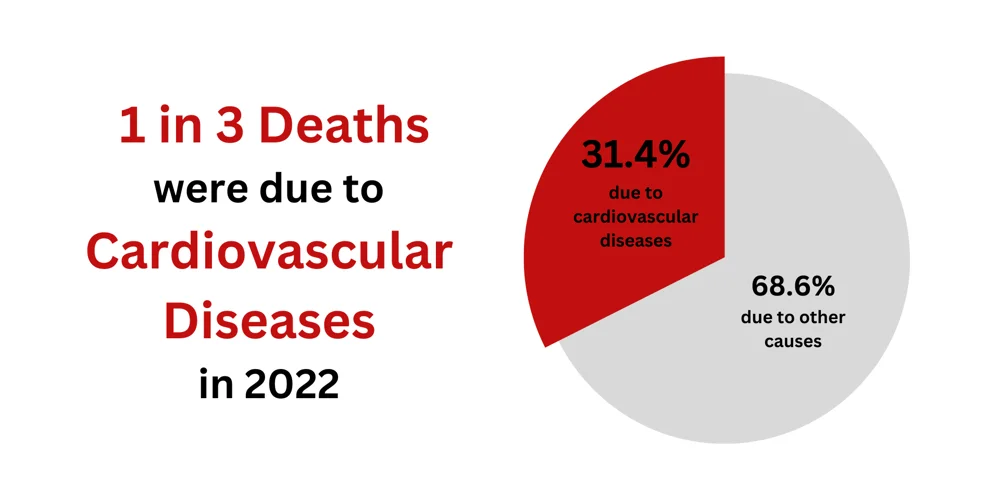
In 2022, cardiovascular diseases accounted for 31.4% of all deaths in Singapore. Given this significant impact, regular screening through tests like the CT calcium score test allows for early detection, helping to manage and mitigate the risks associated with heart disease and improve health outcomes.
Procedure for CT Calcium Score
A CT calcium score test is generally conducted as follows:
- Preparation: Avoid caffeine and exercise a few hours before the test. Just before the procedure, you will need to change into a special gown and remove items such as jewellery and spectacles.
- During the Test: You will lie on a special table that slides into the CT scanner. Small sticky electrode patches will be placed on your chest to monitor your heart's electrical activity. The CT scanner will take multiple high-speed images synchronised with your heartbeat. You may be asked to hold your breath for short intervals during the scan to get clear images.
- Post-Test: After the scan, the images are analysed to determine the presence and extent of calcified plaque in the coronary arteries.
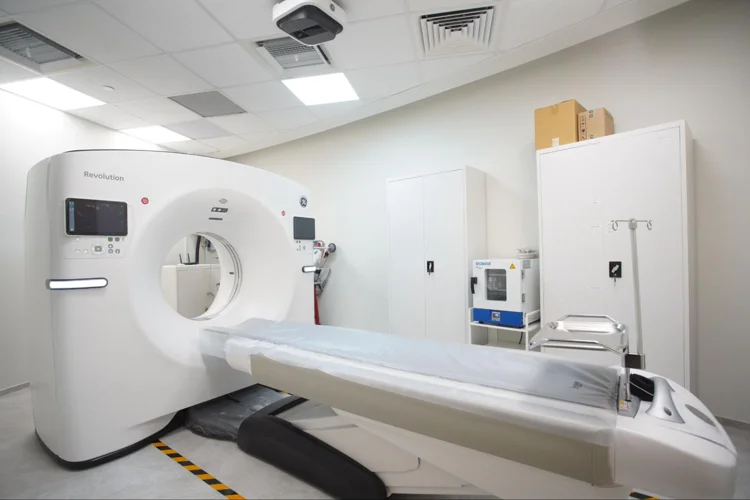
Interpreting CT Calcium Score
The CT Calcium Score test provides a numerical result that shows the amount of calcium buildup in your coronary arteries. A higher score suggests a greater risk of heart-related health issues. Depending on your results, your doctor may suggest suitable preventive steps, which could include lifestyle modifications, medications, or additional tests.

CT Calcium Score Test vs. Other Cardiovascular Tests
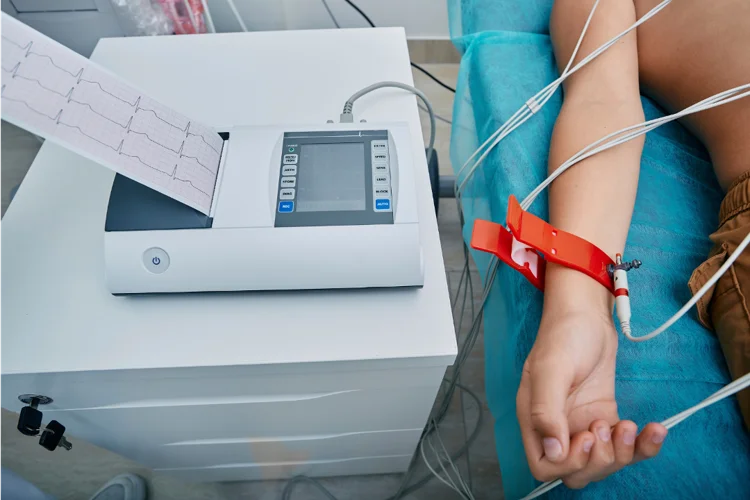
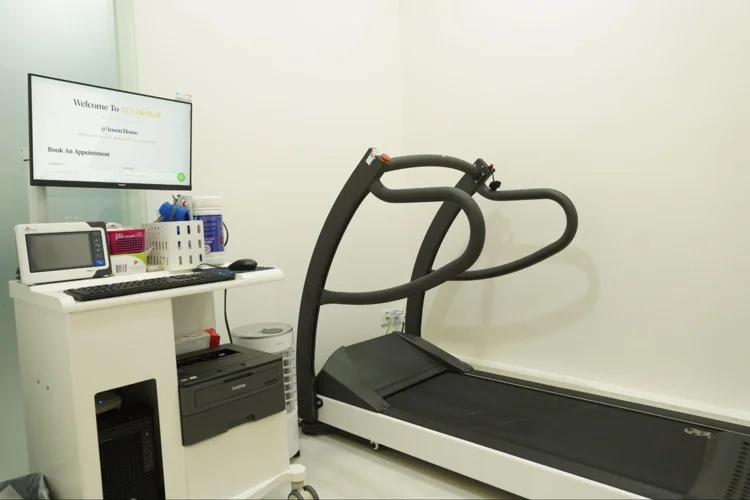
CT calcium score test is one of various tests that provide insights into different aspects of cardiovascular health. Some examples include:
- Electrocardiogram (ECG): Measures the heart’s electrical activity to detect arrhythmias, heart attacks, and other cardiac conditions.
- CT Coronary Angiography (CTCA): Similarly uses computed tomography (CT) to scan the heart’s blood vessels, assessing for any blockages. A contrast dye is injected into a vein to enhance the images and allow for detailed evaluation of the arteries.
- Carotid Intima-Media Thickness (CIMT) Test: Uses ultrasound to measure the thickness of the inner two layers (intima and media) of the carotid arteries to assess for atherosclerosis.
- Stress Tests: Assesses heart function under physical stress, useful for detecting significant blockages and gauging overall cardiovascular fitness.
Price of CT Calcium Score Test in Singapore
At ATA Medical, we offer various cardiovascular tests with the prices as follows:
| Test | Price* |
|---|---|
| Consultation | From $49.05 |
| CT Calcium Score | $403.30 |
| ECG | $49.05 |
| Treadmill Stress Test with ECG | $218 |
| CT Coronary Angiogram | $1,384.30 |
| Ultrasound Carotid Intima-Media Thickness (CIMT) Test | $163.50 |
^Prices last updated on Jan 28, 2026. While every effort is made to keep pricing information up to date, please contact our team to confirm the latest rates.
Where Can I Do CT Calcium Score Test in Singapore
You can do the CT Calcium Score test at our Orchard Clinic:
Summary
CT calcium score is a useful, non-invasive tool in the early detection and risk assessment of coronary artery disease. It provides a clear and quantifiable measure of calcified plaque in the coronary arteries, offering insights into heart health and guiding preventive strategies for individuals at risk of heart disease. Along with blood tests, these diagnostic tools provide comprehensive information about your cardiovascular health. If you are unsure which cardiovascular tests are most suitable for you, schedule an appointment to consult a doctor and discuss your options.
How Do I Make an Appointment?
ATA Medical @ Orchard
Nearest MRT: Orchard Boulevard Station (TE13)
Contact Number: 6223 0682
Email: camden@atamed.sg
Opening Hours:
Mon - Fri: 8:30 AM to 12:30 PM, 1:30 PM to 5:30 PM
Sat: 8:30 AM to 12:30 PM
Sun & PH: Closed


